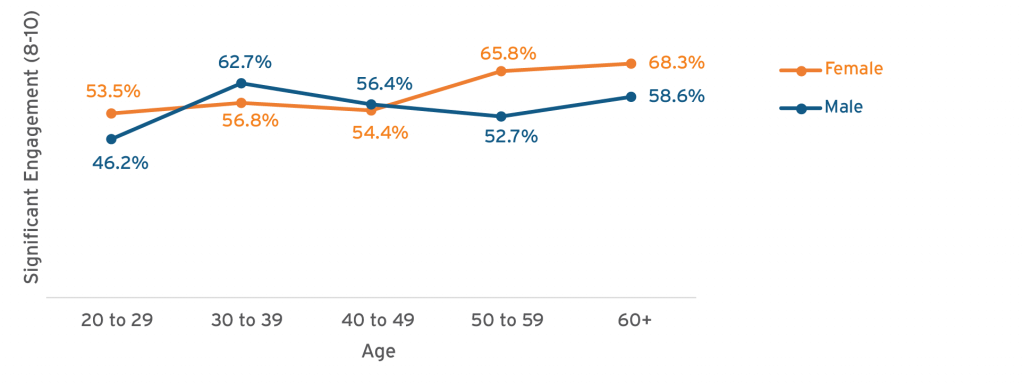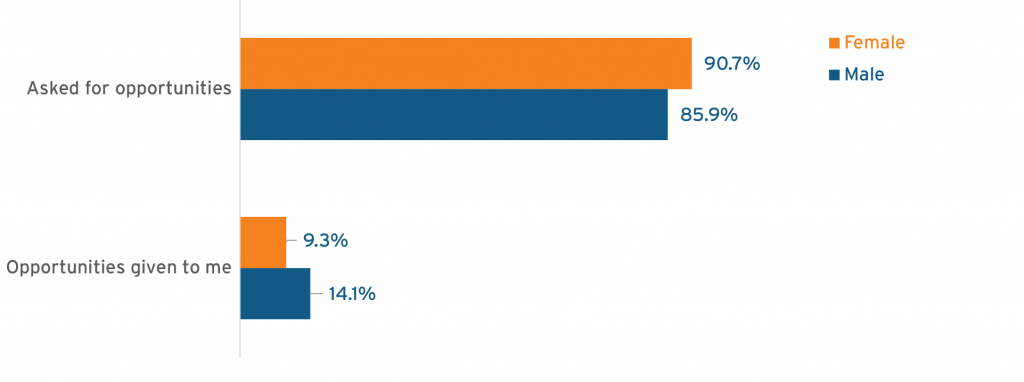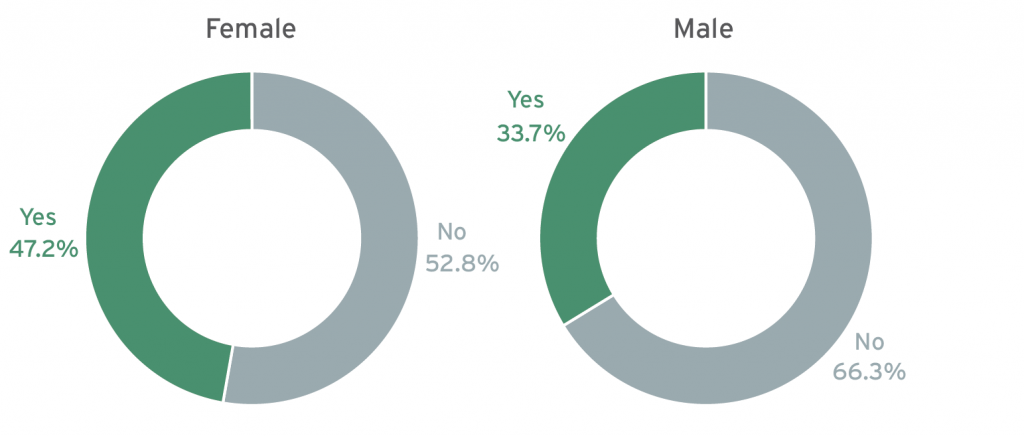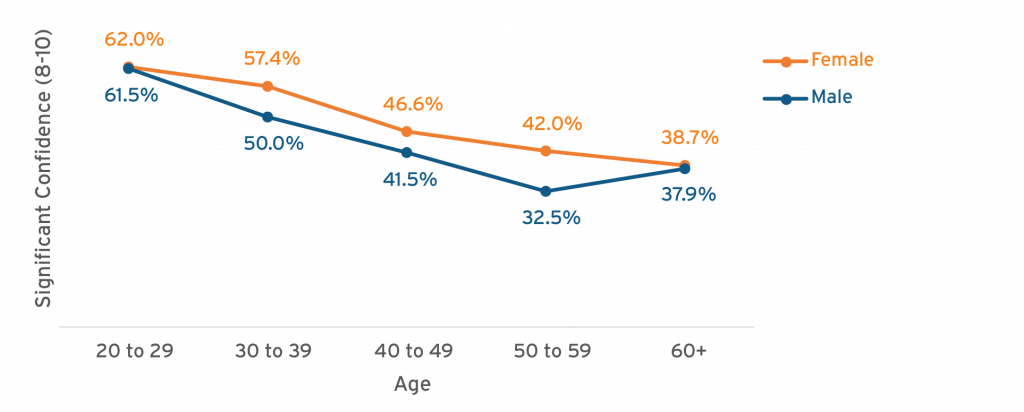In July 2017 an internal memo from a Google employee went viral, outlining what he cited as ‘natural and biological differences’ that keep women from being successful in technology. The resulting firestorm of responses – both for and against – indicates a sense of discontent in the high-tech workplace. The fact of the matter is that despite the growth of women in the workforce and into higher-paying jobs, women remain both underpaid and underrepresented overall. According to the United States Department of Labor, in 2014 women’s earnings were on average 83% of men’s. The number was slightly lower for women in computers and mathematics (81.2%). Women make up fewer than one in three chief executives and just over one in six software developers.

Key Findings
Our survey found that while workers are highly engaged in their current roles, that level of engagement differs by gender and age. Women in the youngest and oldest age groups felt more engaged than their male counterparts, while men in the 30-49 age range felt more engaged than females in the same age groups. This engagement peaked for women at 50+ years old, while for men, that peak comes much earlier in their careers in the 30-39 age group.
Age and Gender Impact on Level of Engagement

Career advancement does not come to those who wait. Achievement requires a proactive approach to recognizing and capitalizing on new opportunities in the workplace. If no opportunities present themselves, it is necessary to create those opportunities and execute on them.
How have opportunities most typically come about in your career?

Mentors and managers are direct influencers of success. Women are more likely to have or have had professional mentors than men, and are more likely to cite managers as having helped to advance their careers.
Do you or have you had a professional mentor?

Job security is directly tied to age in the technology sector. Regardless of gender, older employees feel less secure in their positions. This feeling of instability is more pronounced in male survey respondents than in females.
Confidence in Job Security Drops With Age

Lessons Learned
Our survey proves that both women and men are finding successful and rewarding careers in technology, but recent events playing out in the press demonstrate that there is still room for improvement. Our survey findings show that there are distinct differences not only along gender lines, but by age and ethnic group as well. These factors impact professional success and career satisfaction in the workplace, and employers can benefit from being more aware of these distinctions.
Women find more value in interacting with people and working with mentors than men do. This can be further seen in the factors they consider most impactful on the success of their careers. Respect is of great importance to women throughout their career, especially as they get older. Discrimination is a much greater factor in career advancement for women than it is for men.
Men are more restless throughout their careers, constantly checking out new opportunities – especially if they feel that their current position affords them little chance for advancement. They value more tangible items as factors in their success, such as gaining knowledge through reading to ensure they have the right skill sets for future employment. Lack of job skills is of greater concern to younger male workers.
Companies should embrace these differences to foster growth among current and future members of the workforce. For example, they can take a proactive role in creating mentoring programs and develop reward incentives for mentees to encourage them to participate.
At the same time, there is plenty of common ground. For both women and men, job security becomes a growing issue with age. In the same vein, both genders report that the squeaky wheel gets the oil when it comes to obtaining new opportunities in the workplace. Being successful in a career requires a proactive approach to finding and taking on new challenges. These breaks don’t just happen; they are made.
This set of survey respondents reflects the gender and ethnic bias of the technology marketplace toward White/Caucasian workers. The workplace is becoming more diverse, but it will take time – and if this survey is any indication, current diversity programs are missing the mark with their male audiences. Companies need to rethink their approach to building a more diverse workforce.
More can be done to reach young women and men from different social economic backgrounds and educate them on the many and diverse career opportunities available. Internship programs and summer workshops that reach younger audiences rather than college graduates can help with this.
In terms of self-help, workers can benefit from joining professional organizations and staying current on the latest and greatest technology trends. There are plenty of credible online learning options to help expand and advance existing skill sets and ensure workers remain relevant. This requires work and motivation, but successful people make their own opportunities – they do not wait for them to come knocking.
There is work to be done, but everyone has a part to play. Awareness and a willingness to move beyond the status quo are the building blocks of transformation. It all starts with just one step forward.
